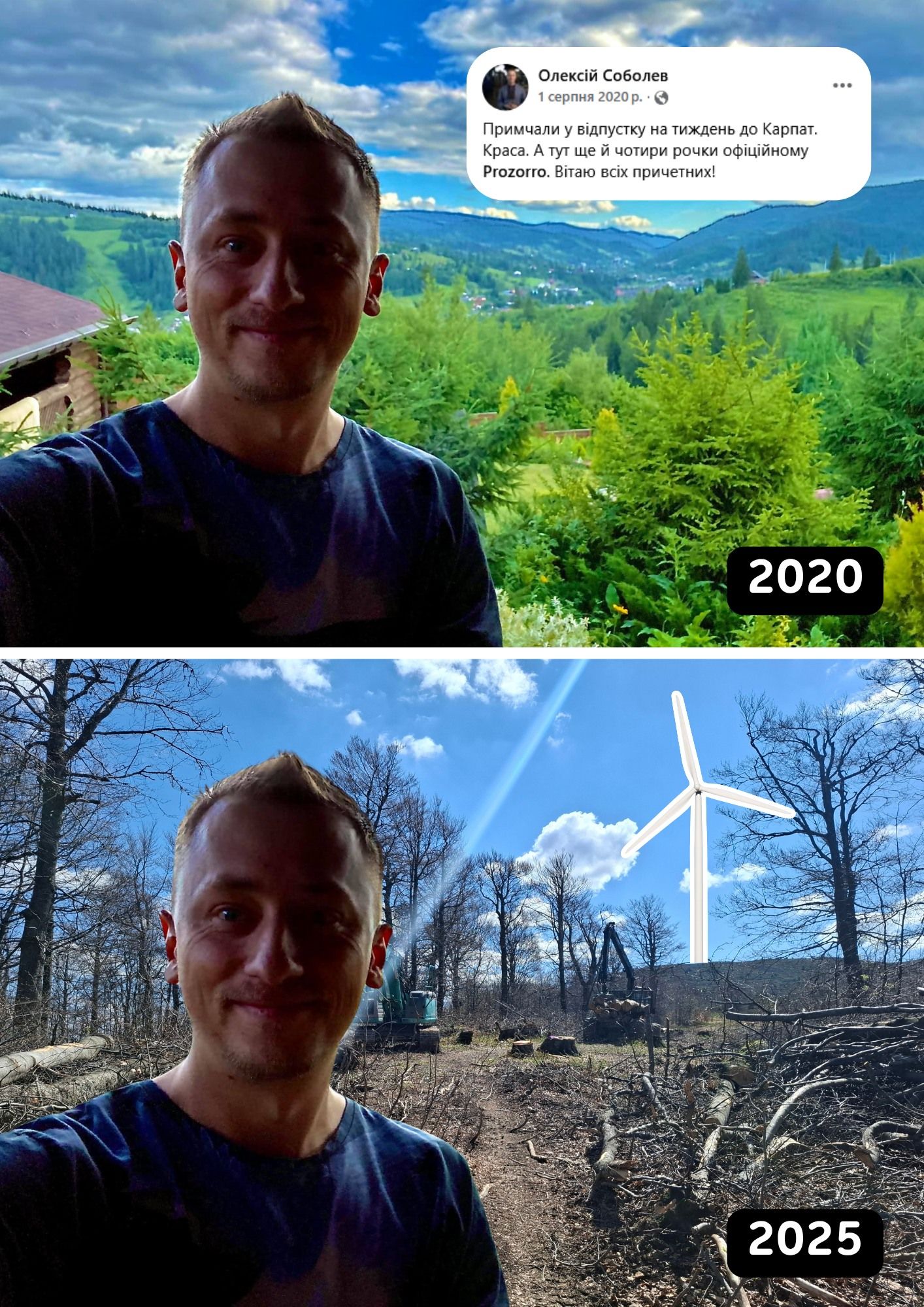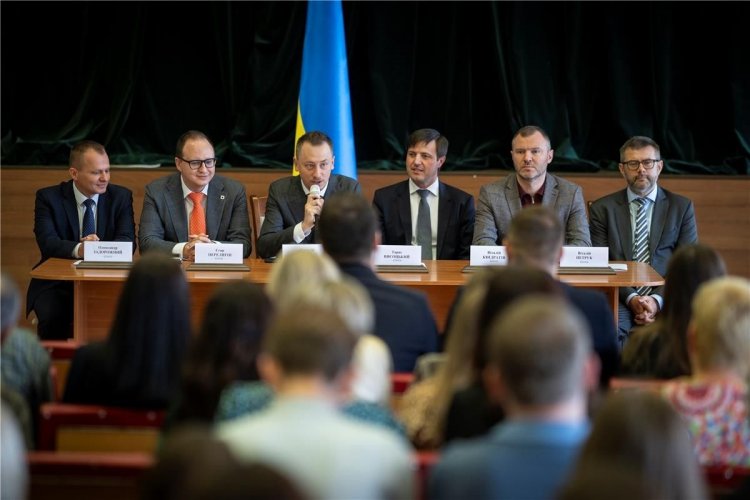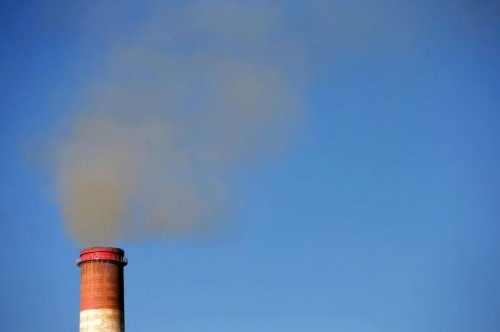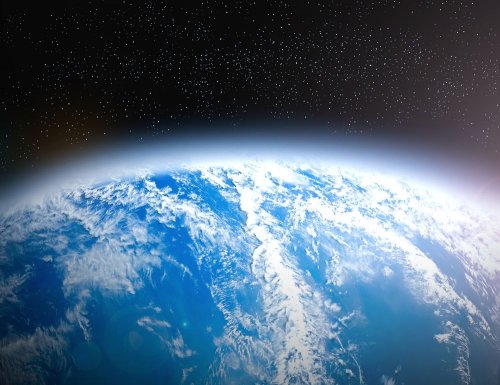In the first part of the article devoted to the first 100 days of work of the Ministry of Economy, Environment, and Agriculture, EcoPolitic analyzed changes in personnel, published draft regulations, and the amount of attention the ministry pays to environmental issues. Now, let's take a look at the assessments that have been made in the public sphere by the Ukrainian environmental community during this time.
We reviewed the websites and social media pages of experts and public organizations that are actively and continuously involved in environmental protection. We found both words of gratitude to the relevant ministry and rather harsh criticism. Unfortunately, the number of negative points noted by environmentalists was much greater than the positive ones.
Thus, on the occasion of the first 100 days of Prime Minister Svyrydenko's government, the Ministry of Economy and Oleksiy Sobolev as the relevant minister, the human rights organization Ecology-Law-Man (EPL) created the following collage:

Collage: facebook.com/epl.org.ua.
“The top photo is real, from the archives of the esteemed minister, and his post is genuine. Let the bottom photo serve as a warning of how things should not be. May the successors of Oleksiy Sobolev, the future ministers of economy, environment, and agriculture, who may be 5, 10, or 17 years old today, have the opportunity to take photos against the backdrop of nature, rather than ruins caused not by an aggressor state, but by local looters," the EPL noted.
According to environmental activist Oleg Listopad, the Ministry of Economy has done nothing and has even failed in its current work.
"In particular, the work of nature reserves and national parks has been blocked due to financial problems," he says.
There are positives, but not many
Members of various environmental NGOs gave the ministry two "pluses" for:
- its official position against amendments to draft law No. 13227-d "On the timber market," which "narrow" the environmental impact assessment (EIA) and could simplify deforestation;
- the signing of the Open Sea Agreement by Minister Oleksiy Sobolev on August 30.
That's where the positives end.
A long list of complaints
A number of civil society organizations have expressed concern that the new government's 12 key priorities do not include a clear focus on the environment. Civil society organizations call this a "symptom of systemic disease," where the state considers the environment not as part of development, but as an inconvenient backdrop.
"Environmental policy should not be an 'add-on' to economic policy, but a separate and priority area of state strategy," insists the NGO Ecoclub.
Illegal mining
Experts from the Ukrainian Environmental Group (UEG) complain that the Ministry of Economy, like the Ministry of Environment, ignores their proposals on how to prevent illegal mining in nature conservation areas. The UPG has repeatedly called for environmental assessments to be carried out before subsoil use permits are put up for auction, for the procedures for selecting sites to be made more transparent and for the public to be involved in them, and for an analysis of whether all the boundaries of deposits approved since Soviet times comply with environmental legislation.
Threat to forests
Environmentalists from this public organization also emphasize that the Ministry of Economy is holding regular closed and open meetings with foresters and wood processors on which environmental restrictions on logging should be lifted. At the same time, environmentalists are not invited to these events.
“We hope that Minister Oleksiy Soboliev will not want to go down in history as the one who abolished all the environmental achievements in the forestry sector of the past decade and paved the way for the destruction of Ukraine's old natural forests,” the UNCG states.
The group's specialists called on the Ministry of Economy to stop work on abolishing environmental regulations and, with the support of environmental NGOs, to develop a clear action plan for preserving Ukraine's most valuable forests.
Insidious deregulation
Another alarming sign for the environmental community was that representatives of the Ministry of Economy fully supported draft law No. 13554 on deregulation at a meeting of the eco-committee. It proposes to abolish several dozen environmental permits and approvals. These include the construction of dams and other structures for water retention on rivers, the leasing of water facilities, the construction of irrigation systems, economic activity in the Chernobyl Reserve, and so on.
"Such initiatives are nothing new. But yesterday, representatives of the Ministry of Economy presented and fully supported the bill. They seem to have forgotten that they are now, in fact, the Ministry of Economy, Environment, and Agriculture. And they should care not only about deregulation but also about environmental protection. Moreover, the representatives of the Ministry of Economy who were present were outraged that other authorities, such as the State Water Agency, expressed their disagreement with the proposed changes," the UPG emphasized.
It seems that in the new system of coordinates of the Ministry of Economy, environmental restrictions are not about environmental safety, but about obstacles to business.
No agency – no problem
The Ministry of Economy also managed to come up with the idea of liquidating the State Agency of Water Resources of Ukraine. According to environmental activists, its powers are planned to be transferred to the State Agency for Land Reclamation, Fisheries, and Food Programs.
In other words, they want to entrust control of water resources to those who are interested in using them. What could possibly go wrong?
This latest "optimization" has been met with sharp criticism from environmental NGOs. The EPL recalled that in 2020, government officials had already attempted to merge the State Water Agency with the Ministry of Agriculture.
"The State Water Agency is responsible for managing almost all state-owned water resources with the aim of preserving them for people, natural ecosystems, and the economy. Assigning such functions to the State Agency for Land Reclamation, Fisheries, and Food Programs is complete nonsense," experts say.
When lies reach a new level – the European level
A separate story is the scandal surrounding correspondence with the European Secretariat of the Bern Convention. It began during the tenure of Minister Hrynchuk, and current officials have decided to continue this "glorious" tradition of concealing the real state of affairs from European partners.
Now, the director of the Kyiv Ecological and Cultural Center, Volodymyr Boreiko, has accused Deputy Minister Ihor Zubovych of lying to European officials from the Bern Convention Secretariat about logging in the Markhalivsky Forest, which is part of the Emerald Network.
According to the ecologist, in response to a request from the Bern Convention Committee, this official sent a reply in which he concealed the facts of numerous violations of environmental legislation and the fact that Ukrainian courts had ruled that construction on this site was illegal. Boreiko claims that the deputy minister added a letter from the Ministry of Veterans Affairs to his response, containing blatant lies that there are no protected species of flora and fauna in this area of the Markhaliv Forest.
Thus, officials continue to repeat their mistakes and undermine international trust in our country.
Risky personnel policy
The EPL is also concerned that the newly formed ministry is laying off employees of the Ministry of Environment who have kept environmental issues afloat for years. They are being replaced by new faces — sometimes without any relevant experience, according to environmentalists.
"In our opinion, it is important to ensure the retention of professional and experienced staff and to prevent the replacement of qualified employees with people who further weaken institutional capacity in this area," said members of the organization.
One hundred days — one hundred SOS signals
One hundred days is too short a time to save the system. But it is more than enough to show which direction it is moving in.
While officials boast about "efficiency," the environmental community cries out about the unacceptability of new "simplifications" and "optimizations."
The irony is that we have seen it all before. And now we have a mega-ministry where environmental issues are somewhere between investment strategies, irrigation canals, and simplifying licensing procedures for business.
Previously, nature was "protected"; now it is "managed." And this is not just a matter of style — it is a political evolution in which the word "environment" increasingly appears to be nothing more than a resource for unconditional use.





